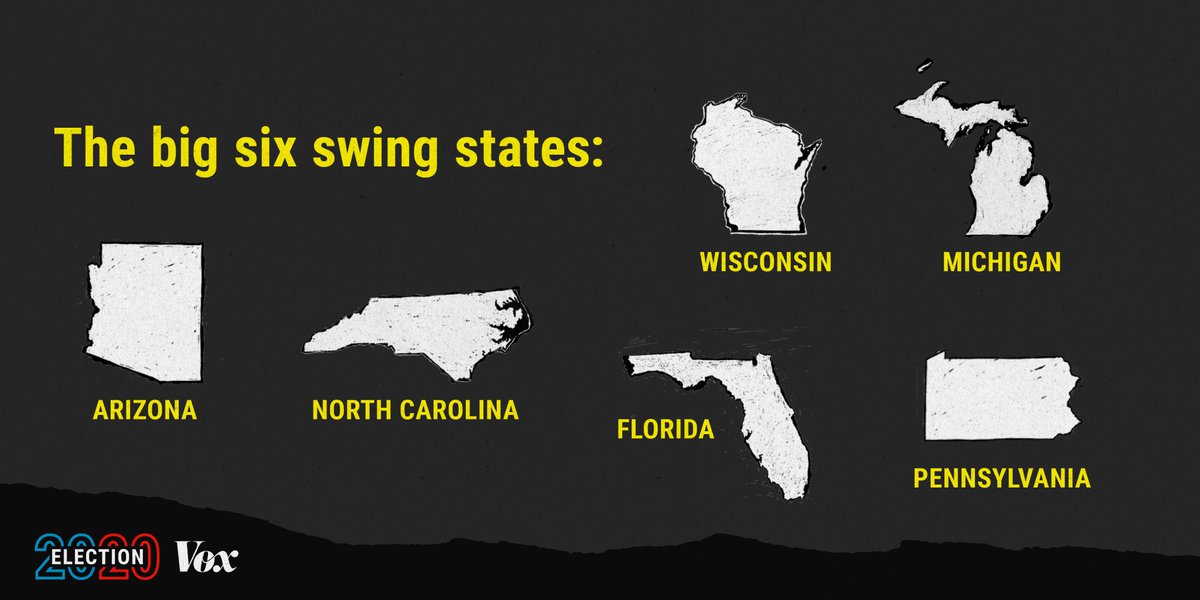
1/ The best way to protect your voting rights on #ElectionDay is to be prepared with the correct information.
Here’s what you need to know about your rights at the polls, and what legal protections you have.
vox.com/2020/11/3/2154…

Here’s what you need to know about your rights at the polls, and what legal protections you have.
vox.com/2020/11/3/2154…


2/ One thing up front: If you need assistance for any reason before or during voting, you should call 1-866-OUR-VOTE (866-687-8683), a national nonpartisan election protection hotline.
3/ Know your state’s voting requirements.
Double-check your polling place: vote.org/polling-place-…
And poll close times: vox.com/2020/11/3/2154…
Double-check your polling place: vote.org/polling-place-…
And poll close times: vox.com/2020/11/3/2154…
4/ Make sure you know what identification is needed before you head to the polls. Here’s a handy map: ncsl.org/research/elect…
Remember, if you are in line when the polls close, you should still be able to cast your vote.
Remember, if you are in line when the polls close, you should still be able to cast your vote.
5/ Be careful of ballot selfies.
At least 14 states consider it illegal to take a photo of your ballot and allow others to see it.
Here’s a state-by-state guide: vox.com/21523858/ballo…
At least 14 states consider it illegal to take a photo of your ballot and allow others to see it.
Here’s a state-by-state guide: vox.com/21523858/ballo…
6/ Be careful what you wear to go vote.
Most states have laws that prohibit “electioneering,” or engaging in activities that support a political candidate or party near polling places. That means it’s probably not wise to wear a MAGA hat or Biden shirt. vox.com/the-goods/2153…
Most states have laws that prohibit “electioneering,” or engaging in activities that support a political candidate or party near polling places. That means it’s probably not wise to wear a MAGA hat or Biden shirt. vox.com/the-goods/2153…
7/ If you have difficulty reading or writing in English, you can choose someone to assist you at the polling station. Some counties must provide bilingual assistance to voters in specific languages.
8/ Polling stations must be accessible to older adults and voters with disabilities.
9/ If your registration or identification is challenged, the official should offer you a provisional ballot.
If you cast one, each state is required to give you either a toll-free number or a website to check and see if your ballot was counted and, if not, the reason why.
If you cast one, each state is required to give you either a toll-free number or a website to check and see if your ballot was counted and, if not, the reason why.
10/ Voter intimidation is illegal.
The Voting Rights Act and various state statutes bar individuals from threatening or coercing you at the polls or while registering to vote.
If you see this behavior, document it and contact local election officials: usa.gov/election-office
The Voting Rights Act and various state statutes bar individuals from threatening or coercing you at the polls or while registering to vote.
If you see this behavior, document it and contact local election officials: usa.gov/election-office
11/11 Learn more about your voting rights here, and what to do if you feel your rights have been violated.
vox.com/2020/11/3/2154…
vox.com/2020/11/3/2154…
• • •
Missing some Tweet in this thread? You can try to
force a refresh







